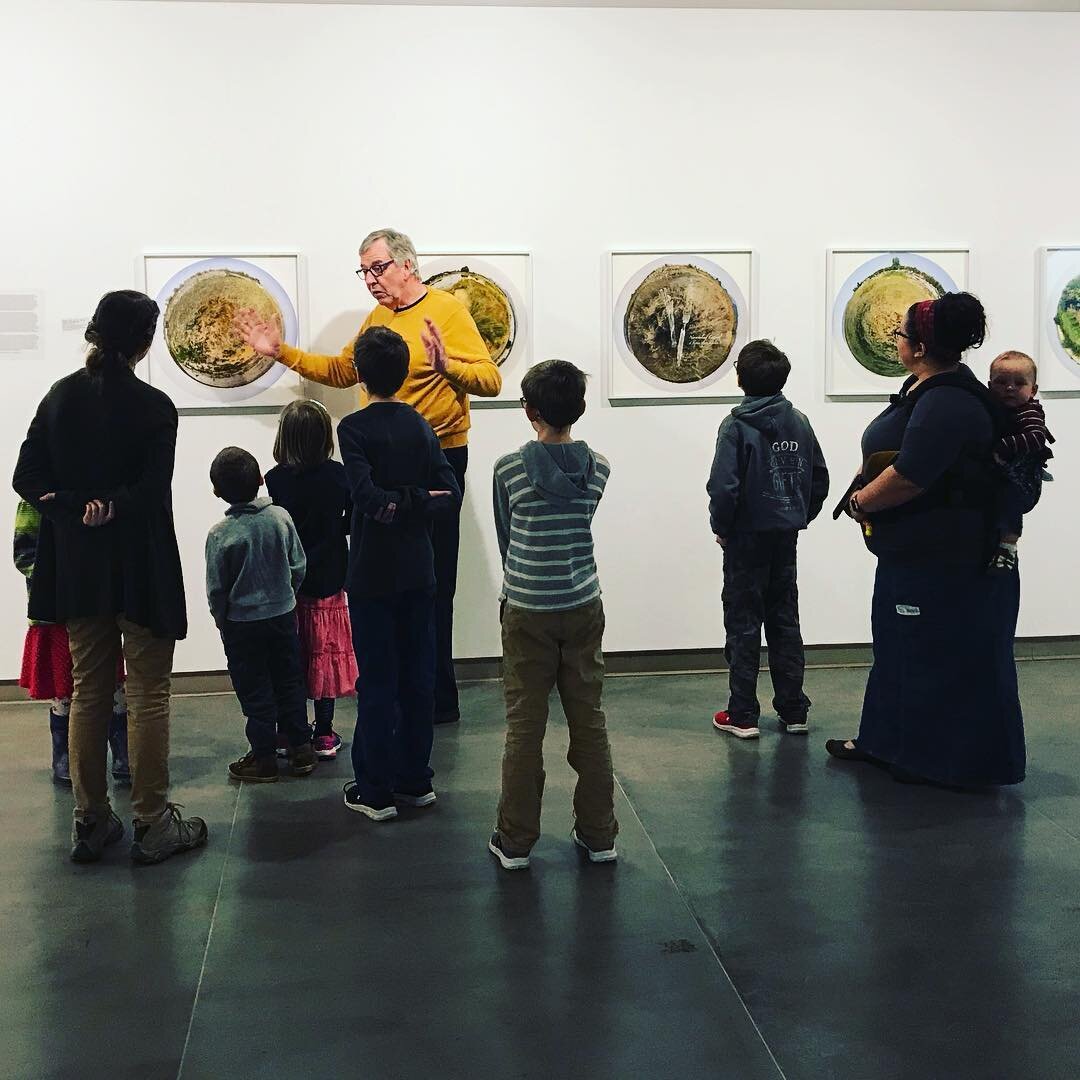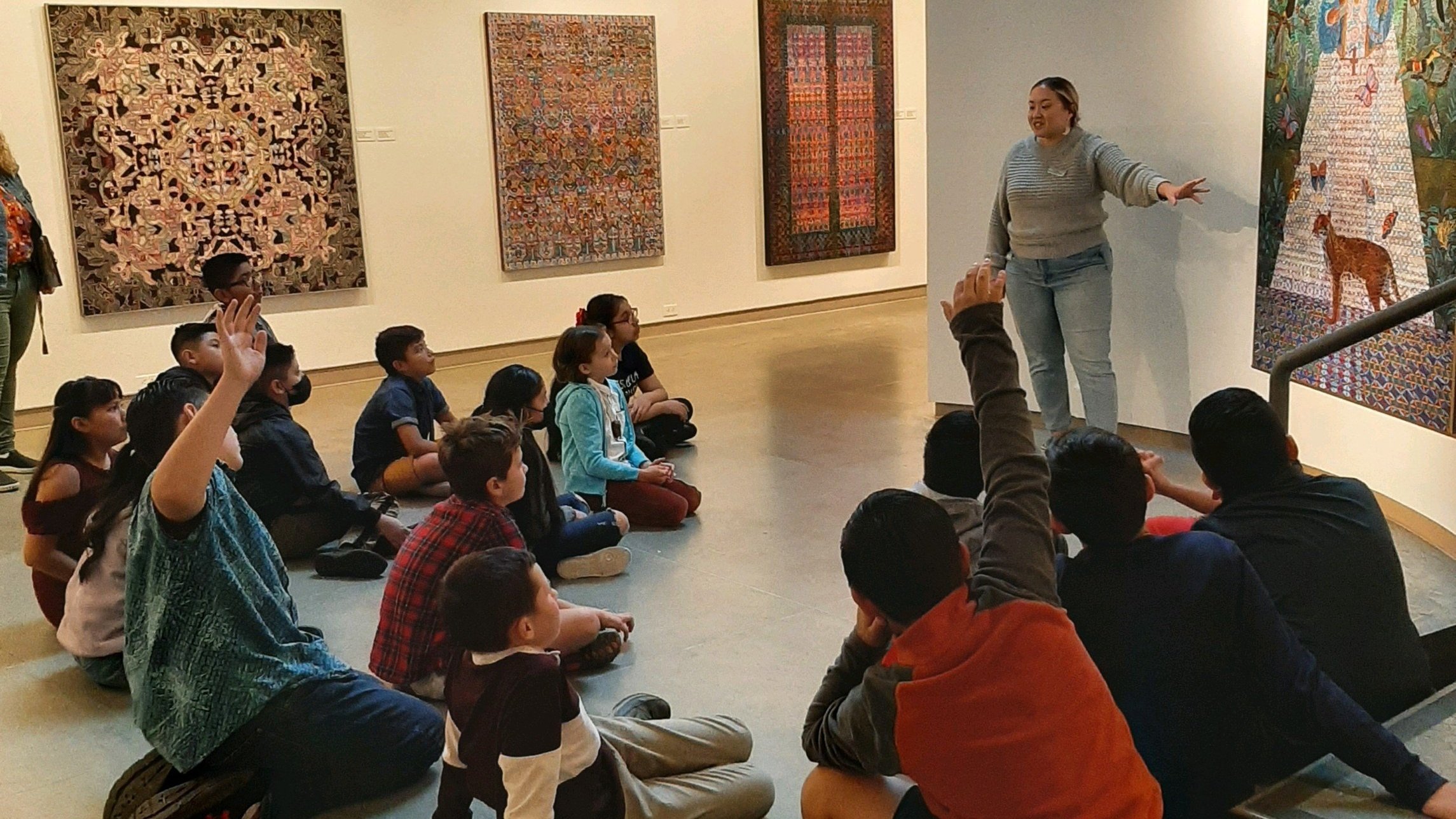
Resources for Educators
MoNA values your work and dedication as an educator and we hope to support you with these resources that we have created and gathered throughout the years. We also have a poster version for you to print and put up in your school or view digitally with live links! Click here for a version in both Spanish & English.
Art Box Lending Library
The Art Box Lending Library is a free art supply rental from the MoNA Art Studio. We are excited to share our resources with teachers in our community! Teachers are welcome to check-out boxes which contain specific art materials and sample lesson plans.
Art Lesson Archives
This unique resource features an expanding collection of comprehensive lesson plans inspired by Northwest artists. The lessons have been thoughtfully crafted throughout the years of the MoNA Link Program, and viewers can download plans in a wide range of media. We have made it a priority to highlight underrepresented artists from the Northwest.
MoNA Link
Established in 2003, this program is a partnership between MoNA and local school districts designed to provide art education opportunities. MoNA Link is a free comprehensive one-year professional development program that offers multiple museum visits and standards based integrated art lessons designed by museum educators.
Creative Connections
Creative Connections connects Teaching Artists with classroom educators (Pre-K through 12th grade) by offering them the opportunity to share their media & expertise with students in a hands-on art lesson. Teaching Artists will receive compensation from MoNA for their time, materials and mileage.

Additional Resources
Visual Thinking Strategies: The MoNA Link program utilizes Visual Thinking Strategies (VTS), which is a research-based teaching method that promotes aesthetic development including critical thinking and communication skills. Here in the MoNA, we use VTS to engage students and general visitors with art encouraging them to observe closely, think critically and discuss respectfully; however, VTS can be effectively used across curricula. This approach teaches its participants how to take the time to observe closely, describe what they see in detail and provide evidence for their observations. Students learn that their reflections and thoughts are valued and appreciated in this inclusive teaching method. VTS promotes the key elements of the Common Core approach to learning, and research has proven its efficacy. If you are interested in learning more about VTS, here is their website.
Art Supplies for Kids (ASK) Program: The goal of this program to help out local art educators as they provide art instruction to the next generation of artists. Educators can click here for more information or to apply.
Washington State Arts Standards: As a useful guide for WA State Educators, here is a link to the Arts Standards. The standards promote holistic education for students, as the arts engage all learning styles and lead to powerful and lifelong learning habits such as creativity, collaboration, communication, and critical thinking.
John McCoy (lulilaš) Since Time Immemorial: Tribal Sovereignty in Washington State Curriculum: This state-mandated Curriculum teaches about the history, culture and government of the nearest federally recognized Indian tribe or tribes. The online curriculum has a menu of Tribal sovereignty information, short lessons, and even entire units for every U.S. History, Washington State History, and Contemporary World Problems unit that OSPI recommends.
Cedar Box Experience: This interactive and educational website offers an immersive journey into Pacific Northwest plants, foods, cultural ecosystems, and Coast Salish foodways. Learn through stories, art, photos, videos, games, and explore the sounds found in cultural ecosystems. The project is a collaborative effort between Feed Seven Generations, Tahoma Peak Solutions, GRuB’s Wild Foods and Medicines Program, and the Swinomish Community Environmental Health Program.
13 Moons Curriculum: This curriculum was developed by the Swinomish Community Environmental Health program with the goal to create an informal and scalable model of environmental health education through the lens of first foods and resources. Children Of The Setting Sun Productions collaborated with Swinomish to create an accompanying video series.
Skagit Watershed Council’s Environmental and STEAM Programs for K-12: The following local organizations are offering programs for in-person or virtual K-12 classrooms and/or parents who are homeschooling.
Arts Ed Washington: Arts Ed Washington advocates for equitable arts education in Washington’s education system and provides a free Arts Lessons in the Classroom Curriculum, designed for K-6 teachers to integrate visual arts into their classrooms with ease.
Child Protection Policy: MoNA requires that minors participating in MoNA Link, Early Enrichment, and other events or programs are to be accompanied at all times by an adult or a school-designated representative when at the museum.
MoNA Link Resource Lists: developed as part of the MoNA Link Curriculum and packed with resources organized by integration subject.






